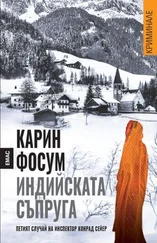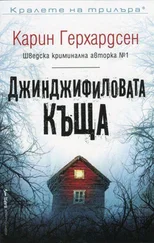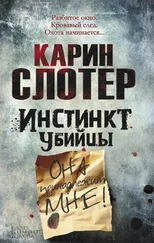Карин Тидбек - Amatka
Здесь есть возможность читать онлайн «Карин Тидбек - Amatka» весь текст электронной книги совершенно бесплатно (целиком полную версию без сокращений). В некоторых случаях можно слушать аудио, скачать через торрент в формате fb2 и присутствует краткое содержание. Город: New York, Год выпуска: 2017, ISBN: 2017, Издательство: Vintage Books, Жанр: Фантастика и фэнтези, на английском языке. Описание произведения, (предисловие) а так же отзывы посетителей доступны на портале библиотеки ЛибКат.
- Название:Amatka
- Автор:
- Издательство:Vintage Books
- Жанр:
- Год:2017
- Город:New York
- ISBN:978-1-101-97395-0
- Рейтинг книги:4 / 5. Голосов: 2
-
Избранное:Добавить в избранное
- Отзывы:
-
Ваша оценка:
- 80
- 1
- 2
- 3
- 4
- 5
Amatka: краткое содержание, описание и аннотация
Предлагаем к чтению аннотацию, описание, краткое содержание или предисловие (зависит от того, что написал сам автор книги «Amatka»). Если вы не нашли необходимую информацию о книге — напишите в комментариях, мы постараемся отыскать её.
Amatka — читать онлайн бесплатно полную книгу (весь текст) целиком
Ниже представлен текст книги, разбитый по страницам. Система сохранения места последней прочитанной страницы, позволяет с удобством читать онлайн бесплатно книгу «Amatka», без необходимости каждый раз заново искать на чём Вы остановились. Поставьте закладку, и сможете в любой момент перейти на страницу, на которой закончили чтение.
Интервал:
Закладка:
“It can’t be that bad,” said a voice behind her.
It was Nina. There were dark circles under her eyes, but she was smiling.
“Hello,” she said. “I usually eat here after the night shift.” She sat down on the chair opposite and prodded the envelope. “What’s that?”
Vanja shrugged. “A list of hygiene-product manufacturers. It’s not very exciting.”
Nina laughed. The cook rang a little bell over at the counter. Nina got up and returned with a plate piled high with hash and boiled beans. Vanja leafed through the papers while Nina methodically shoveled food into her mouth.
“Why did you get a job like that, really?” Nina said around a mouthful of beans.
Vanja folded and refolded one of the pages. “Ehm… I don’t know.”
“I don’t mean to be rude, but it’s a pretty odd thing to do. Interview people about how often they wash themselves?”
“Yeah… I suppose it’s not that great.”
Nina gestured with her fork. “I’m not saying it’s boring in itself, but you don’t exactly seem like you enjoy being around people. I mean this whole thing of making small talk and being friendly. You seem more like Ivar, like you prefer your own company, correct me if I’m wrong. So why pick a job where you have to talk to people? Or was it assigned to you?”
Vanja folded the paper again and again. “I don’t know how to answer that.”
Nina put her fork down. She rested her forearms on the table and leaned forward. “Let’s try this, then,” she said. “What’s your education?”
“Information assistant.” Vanja kept her eyes lowered, but she could feel Nina watching her.
Nina nodded. “That makes sense. And what did you do before you started work at E.H.S.?”
“I wrote pamphlets for the education unit. You know. Those little manuals.”
“‘How to Stay Healthy’ and ‘General Clothing Maintenance,’ that kind of thing?”
“Yes, exactly. It was sort of fun, actually.”
“And how did you end up at E.H.S.?”
“It was Ärna. My sister. She knew the founder of the company. She thought I needed to get out and meet people.” Vanja unfolded the paper and folded it in the other direction. “So I got an interview.”
Nina pushed the empty plate into Vanja’s field of vision. “And how’s that working out for you?”
“Eh. It’s okay. Or… I guess that’s irrelevant.”
“Okay, you’re going to have to relax a bit, Vanja. I know you’ve come to do a job, but you’re welcome here. I really enjoy having you.”
Vanja looked up. Nina was leaning in even closer, head tilted to one side. She smiled when Vanja met her gaze. The green in her irises was speckled with brown. Fine lines radiated from the corners of her eyes. They deepened as Nina smiled again.
“There you are,” Nina said. “Hi.”
“Hi.”
“I mean it. I’m glad you’ve come.”
Vanja felt her face flush and looked down at the table again. “I’m glad to be here,” she mumbled.
“Except that you hate your job,” Nina added.
“Except that. I don’t think I’m very good at this. I mean… there aren’t any instructions for what I should be doing. I’ve tried to do some research, but… I don’t even know what they want.” Vanja fingered the coffeepot. “What if I do it wrong? What if I’m here for three weeks and come back with information they can’t use?”
Nina laughed. “It’s not you—it’s your job that’s completely absurd. Well, all right. I’ll help you out, if you’ll let me.” She poked at the crumpled paper in Vanja’s hand. “You’ve got your statistics there. We’ll get you some workplace visits. We can start at the clinic, and then you can do a field study with Ivar. And then we’ll persuade Ulla to talk a little about what it was like back when she was young, so you get the historical aspect. And then you’ll have a nice little report for your boss.”
Vanja considered this. “It sounds good, actually.”
“Then that’s decided!” Nina got up. “I’m going home to get some sleep. I’m on the day shift tomorrow. You can come with me to the clinic then.”
Vanja stayed for a while after Nina had left. Nina’s familiarity was both unsettling and liberating. It was impossible to lie to her. If Vanja wasn’t careful, Nina would soon realize what a failure she was dealing with, and then she’d back right off. It was almost comforting to know that beforehand.
She tore a page off her notepad and wrote a short letter.
Dear Ärna,
Have been in Amatka for a few days. It is cold but my hosts are friendly. Am doing research. Do not know how long it will take, but have a ticket for a trip back in three weeks’ time, so should be finished by then. I hope Per is fine and that Pia and Dorit are well behaved in the children’s house.
Vanja folded the paper and packed her things into the satchel. When she exited the eatery, she turned toward the center again, heading for a little all-purpose store, where she bought a couple of necklaces made of spotted pebbles from the lake. She moved on to the post office and sent the letter and the gifts to Ärna.
Back in her room, Vanja wrapped herself in the pink duvet and put the two library books down next to her on the bed. A Short History of Amatka described the pioneers and their hard work to build the colony—twice. According to the book, Amatka had first been built as a coastal colony in the style of Balbit. Shortly after construction commenced, the lake’s water level suddenly rose, forcing the colony to move. Most of the building materials could be transported inland, but some had been lost.
A section of the book was dedicated to the Heroes, pioneers who had contributed to the colonies with exceptionally hard work and initiative. Benins’ Yara and her group, who built the railroad from Essre to Amatka sleeper by sleeper. Haras’ Samir, the brilliant scientist who prevented an epidemic by synthesizing a cure from mushrooms. Danlas’ Åke, who organized the first children’s house. And Speaker Hedda, the greatest Hero of them all. When the old world was decadent and doomed to ruin, Speaker Hedda found a way into a new world and led her people there. No one had ever explained exactly where the old world was, or what it was like. It was irrelevant. They were here now, in the new world, where they had built the ideal society.
Another section of the book featured Amatka’s literature, especially its poetry. Berols’ Anna had a whole page to herself. In the picture she was solemn, of early middle age, with severe dark eyebrows over a soft face. According to the caption, Berols’ Anna was one of the people who died in the fire in Leisure Center Three. Vanja leafed through the book until she found a chapter with that title.
On Thirday of the twelfth month, in year 90 A.A., a fire broke out in Leisure Center Three, where almost a hundred citizens had gathered to take part in Amatka’s annual poetry and music festival. The fire started in the coatroom, where an electrical component short-circuited and ignited the clothes on the walls, generating massive amounts of smoke. The fire quickly spread to the rest of the hall. The final death count was 103, with most victims succumbing to smoke inhalation. We mourn our comrades and honor their memory by looking forward, thankful for their many contributions to the commune.
“Looking forward” meant that this was no longer an accepted topic of conversation. Perhaps the accident was someone’s fault: a decision made somewhere that would have made the committee look bad. Or people had mourned too much and for too long. That wasn’t proper, either. One should be grateful and look forward.
Vanja put the book down and opened About Plant House 3 . The text was difficult to read at first. Every sentence had been whittled down until only the absolutely necessary words remained. Every one of those words was precise; it could have been lifted out of the text and hold enough meaning in itself. In Berols’ Anna’s poetry, all things became completely and self-evidently solid. The world gained consistency in the life cycle of plants, the sound of a rake in the soil. Breathing became easier. Vanja read the book from cover to cover. When she had followed Plant House 3 through an entire year, from harvest to harvest, the room had darkened. Downstairs, someone clattered with pots and pans.
Читать дальшеИнтервал:
Закладка:
Похожие книги на «Amatka»
Представляем Вашему вниманию похожие книги на «Amatka» списком для выбора. Мы отобрали схожую по названию и смыслу литературу в надежде предоставить читателям больше вариантов отыскать новые, интересные, ещё непрочитанные произведения.
Обсуждение, отзывы о книге «Amatka» и просто собственные мнения читателей. Оставьте ваши комментарии, напишите, что Вы думаете о произведении, его смысле или главных героях. Укажите что конкретно понравилось, а что нет, и почему Вы так считаете.












![Карин Тидбек - Аматка [ЛП]](/books/438406/karin-tidbek-amatka-lp-thumb.webp)